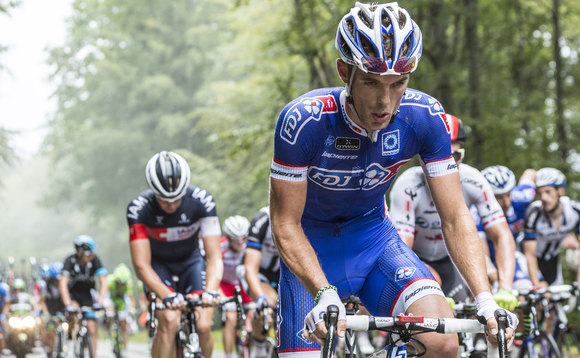
Long-term performance of French PE continues to improve

While market conditions remain difficult, French private equity posted strong performance figures in 2014, according to a study by local association Afic and EY. Greg Gille looks at the numbers and talks to Afic chairman Michel Chabanel
The data, which was collected by Afic from 131 of its members and analysed by EY, shows that local players can hold their head high. The net IRR since inception of French funds across the private equity spectrum stood at 10.1% at the end of 2014, equating to a 1.45x multiple – both figures compare favourably to the results of last year's study, when they reached 9.5% and 1.37x respectively. Looking at a 10-year period, net IRR rises to 11.3%.
The strong IPO window in the first half of 2014, and more generally the increased divestment activity over the past year, could help explain the performance differential with the 2013 figures. "The uptick in 2014 was driven in part by a larger number of exits," agrees Michel Chabanel, chairman of Afic. "Portfolios are usually valued conservatively, so divestments tend to highlight the true value of underlying investments, which usually has a positive impact on aggregated performance figures."
But these headline performance indicators hide the significant disparity between the different segments of the industry. Buyout players have performed particularly well over the past 10 years, with the net IRR standing at 15.6%. At 6.5% over 10 years, the performance of growth capital vehicles has predictably been more muted, while venture capital funds close the rank with a net IRR of 2.1%. That said, the latter registered the strongest increase on 2013 figures, when the 10-year performance of venture vehicles stood at a paltry 0.8%.
Afic is currently in the process of sourcing comparable data from other European markets. According to the most recent BVCA statistics (which will inevitably differ in their methodology), UK private equity returned an impressive 14.9% over 10 years at the end of 2014, boosted by a particularly buoyant exit market in the past 18 months. It remains to be seen whether French players can edge out their continental neighbours, however – in last year's study, France was already outpaced by the UK but significantly outperformed the rest of Europe.
Pulling away
Chabanel is also keen to point out that the key to French private equity's appeal is its consistency, as well as the fact that it remains more attractive than other asset classes in the country. "Private equity in general, and in France in particular, continues to generate robust performance - and more importantly it is performing consistently. Looking at the comparison with the CAC 40 index shows that even though private equity is not totally de-correlated, it is sheltered from significant volatility," he says.
Indeed, the CAC 40's performance over the same 10-year horizon was less than half of what private equity could deliver, with 4.8% average net returns at the end of 2014. More importantly, the French industry continues to outpace other asset classes that traditionally compete with private equity for allocations, according to comparisons drawn up by Afic and EY – hedge funds posted an average performance of 5.8% over 10 years, while real estate returned 6.4%.
"Private equity is often criticised for its perceived lack of liquidity, but the comparison with other asset classes shows that this long-term focus pays dividends when it comes to the level and consistency of performance," notes Chabanel. "Our industry generates almost twice the returns of other asset classes, including hedge funds and real estates, which is a fantastic achievement."
Charm offensive
Could this have an impact on the attractiveness of the French private equity industry when it comes to overseas investors – a point that has been put into sharp focus in the aftermath of the financial crisis? Chabanel argues progress on this front is already underway: "Overall, international investors are now more positive with regards to French private equity – this was obvious in last year's fundraising statistics, which showed that more than 40% of commitments to French funds came from foreign investors. Again, the consistency of return figures and low risk factor over a 10-year period has shown LPs that French private equity remains an attractive proposition despite the challenges faced by the French economy."
Furthermore, the local private equity community is looking forward to welcoming good news on the regulatory front. The Société de Libre Partenariat, a new fund structure drafted by the legislator and the industry to more closely resemble the Anglo-Saxon LP structure, is set to make it out of parliament relatively unscathed.
"Despite its performance, on legal points French private equity was perhaps not as competitive as it could have been on the international scene compared with our counterparts in the UK or Luxembourg," says Chabanel. "This new structure should be implemented towards the end of July and we do not expect to see significant changes to the initial draft. The increased flexibility, the fact that it is more closely aligned with structures in other jurisdictions, and the transparent tax treatment will make it much more appealing to international investors than the previous FCPR structure."
Latest News
Stonehage Fleming raises USD 130m for largest fund to date, eyes 2024 programme
Multi-family office has seen strong appetite, with investor base growing since 2016 to more than 90 family offices, Meiping Yap told Unquote
Permira to take Ergomed private for GBP 703m
Sponsor deploys Permira VIII to ride new wave of take-privates; Blackstone commits GBP 200m in financing for UK-based CRO
Partners Group to release IMs for Civica sale in mid-September
Sponsor acquired the public software group in July 2017 via the same-year vintage Partners Group Global Value 2017
Change of mind: Sponsors take to de-listing their own assets
EQT and Cinven seen as bellweather for funds to reassess options for listed assets trading underwater








